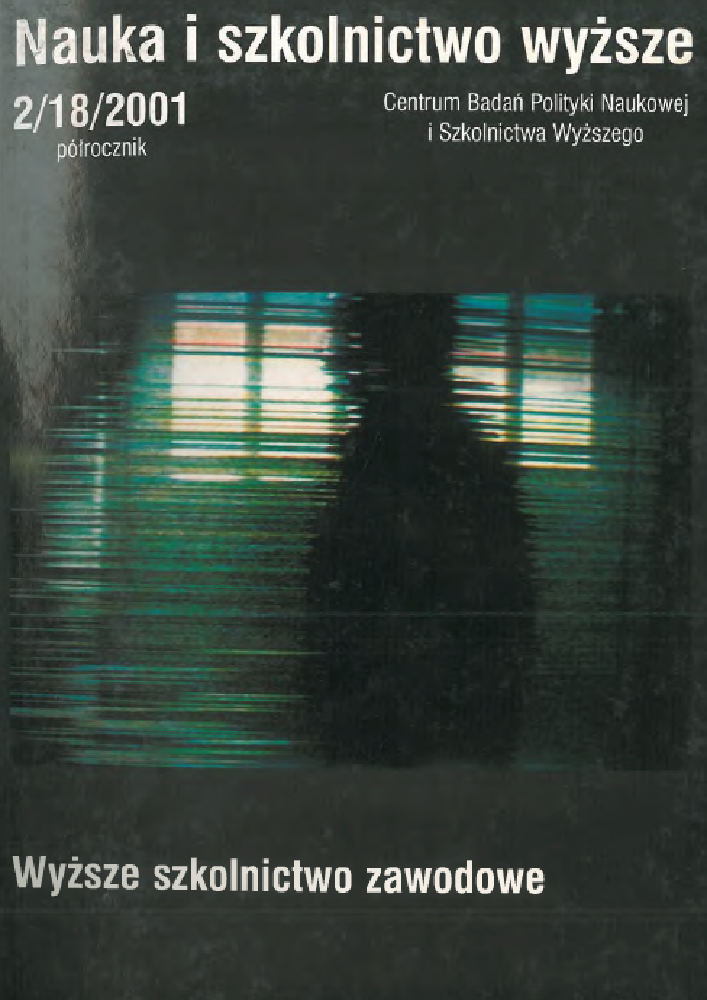Abstract
The author analyses the condition of higher vocational education four years after the Higher Vocational Educational Institutions Act was passed. He points out the difficulties these institutions had to cope with when they began to operate and still have to cope with due to inequality on the education market. The many obstacles which higher vocational educational institutions have to overcome and the lack of public support for this form of education are discussed on the basis of the experience of the Accreditation Commission for Higher Vocational Education (KAWSZ). The dilemmas which KAWSZ faces when issuing opinions of petitioners wanting to open new colleges and the legal shortcomings which interfere with the smooth operation of KAWSZ are presented. Although the overall tone of the article is pessimistic as far as the future of higher vocational education is concerned, the author ends with the appeal to retain this branch of education because it definitely has a positive effect on the economy.
References
Informator... 2001 Informator dla kandydatów na studia wyższe w roku akademickim 2001/2002, Ministerstwo Edukacji Narodowej, Perspektywy Press, Warszawa.
„Perspektywy...” 2001 „Perspektywy. Miesięcznik Edukacyjny”, nr 7/8 (38).
Ruśkowski E. 2001 Studia licencjackie w ustawie o szkolnictwie wyższym i o wyższych szkoiach zawodowych - zasadne zróżnicowanie czy konstytucyjna nierówność. Wnioski dla rozwiązania problemu, w: Materiały konferencji naukowej „Procedury podejmowania rozstrzygnięć i inne istotne problemy prawne w szkolnictwie wyższym”, Białystok, luty 2001.
Witkowski M. 1998 Koncepcja wyższego szkolnictwa zawodowego, „Polityka Społeczna”, t. 25, nr 9, s. 17-20.
Witkowski M. 1999 Poprzeczka wcale nie nisko, „Forum Akademickie”, nr 4, s. 38-40.
Witkowski M. 2000 Wyższe szkolnictwo zawodowe - nieuniwersytecka droga rozwoju wyższej edukacji, „Nauka i Szkolnictwo Wyższe”, nr 2/16, s. 136-143.
Witkowski M. 2001 Kryzys idei wyższego szkolnictwa zawodowego?, „Forum Akademickie”, nr 6, s. 28-31.
